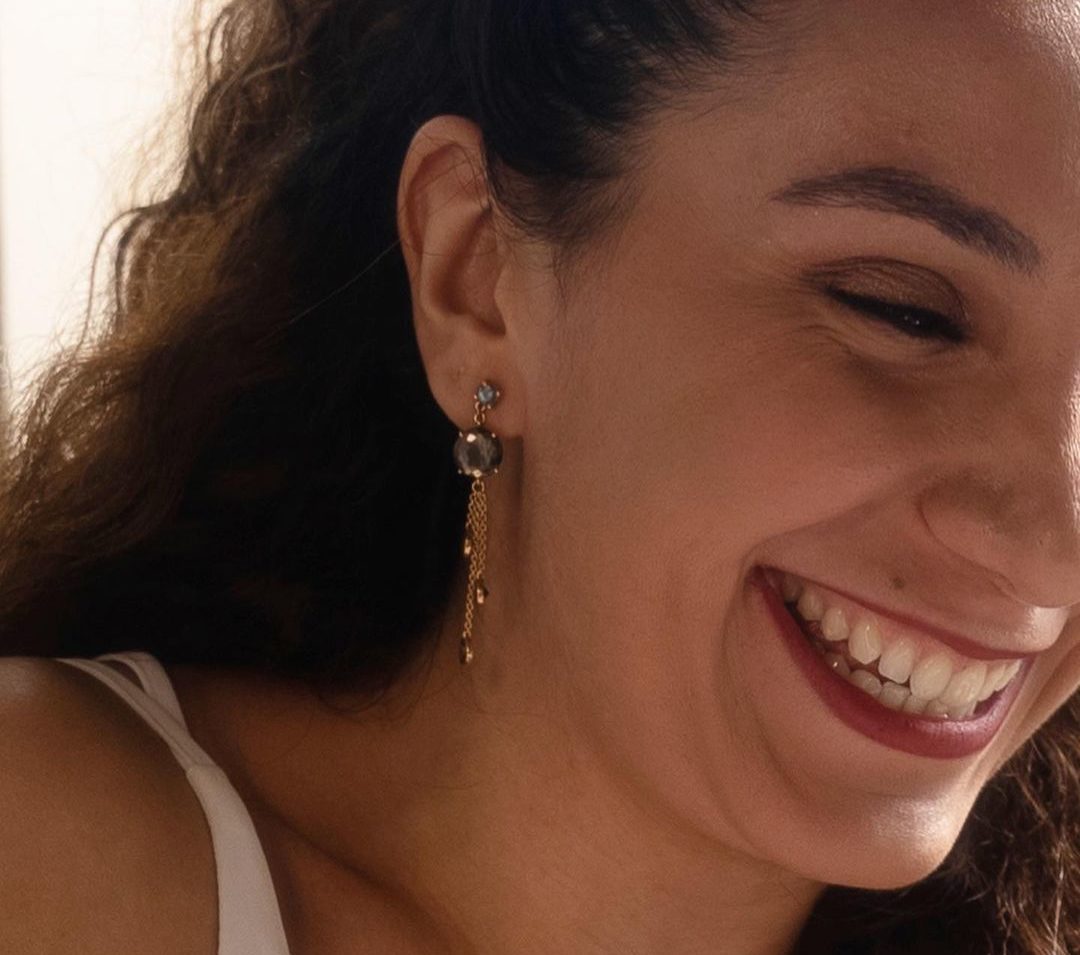We all want the opportunity to dress ourselves up in fine jewellery and to feel as gorgeous as we are, and in a world where we are borrowing each other’s houses, cars, clothes, boats and more; why not share jewellery, too?
Covett has revolutionised fine jewellery with their shared ownership and subscription-based models which allows for the sharing of fine jewellery driving up the utilisation of the pieces, and in most cases reducing the need to produce more fine jewellery that spends most of its life sitting in someone’s safe.
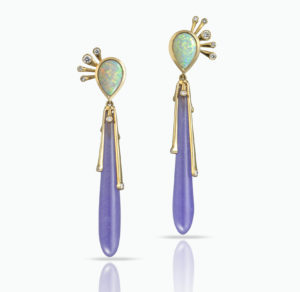
LeSter, SUMMER’S LIGHT EARRINGS – Jade, Diamond, Opal & 18K Gold
At Covett, they believe that sharing and circular economy models like Covett allow consumers who covet fine jewellery to be more conscious about how they consume fine jewellery. In addition, they work with many fine jewellers who are embracing more sustainable practices of producing fine jewellery creating a win/win for all.
A conscious consumer chooses to move away from the consumerist culture of buying more, more and more as quickly as possible and embrace making every purchase choice with a lens of the impact of that purchase.
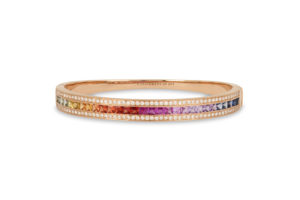
Alice Van Cal, The Rainbow Union Bracelet in Rose Gold
Sharing jewellery can make having jewellery a more conscious choice in the following ways:
1. Increasing the utilisation of an item, to reduce the need to produce more, reducing environmental and social impacts.
2. Reducing packaging by only using reusable packaging and not contributing to waste.
3. Increasing the product’s life span by providing semi-annual maintenance.
4. Providing a platform for the resale of jewellery shares and pieces, which extends its life.
5. Providing a platform for the monetisation of jewellery that no longer is being worn to have a second life and reduce the need for the purchase of new fine jewellery.
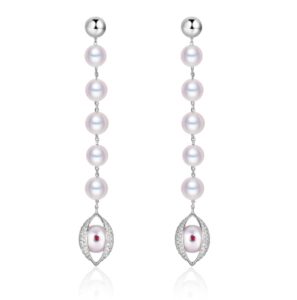
Zeemouzeng, Eye Dangle Earrings 18 karat White Gold Akoya Pearls Ruby Pave Diamonds
The first premise of conscious consumerism is to buy only what you need – but in many cases can remove entire sectors from the market. Do I really need more jewellery? Probably not, but if I choose to have jewellery in my life, is there a way to access it when I want or need to wear it rather than have it sit idle.
While most everyone understands the impact fast fashion has had on the planet and the need to reduce the amount of clothing that is produced, consumed and ends up in landfills. They may not understand the impacts of producing fine jewellery.
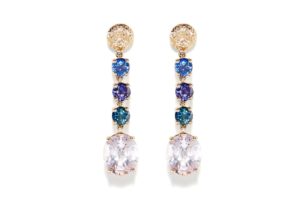
Eva Gems and Jewels, Out of the Blue Earrings
Fine jewellery by its nature is much more durable, however, the jewellery industry clearly needs to reduce its negative impact on the environment ranging from erosion of the land to leakage of harmful chemicals into the water supply, to the alteration of an entire ecosystem. There is also great concern over the exploitation of workers and hazardous working environments. While there are many initiatives which are focusing on reducing the environmental and social impacts In of jewellery production, such as Fairtrade Gold, and the Responsible Jewellery Council, much more needs to be done, and it will take time. With this in mind, can we change the way we consume fine jewellery now?
Sharing and circular economy models like Covett, drive up the utilisation of fine jewellery pieces, and in many cases can reduce the number of pieces to be mined and created. In addition, resale of unused jewellery and shares is a great way to ensure that these pieces are enjoyed by new jewellery enthusiasts.
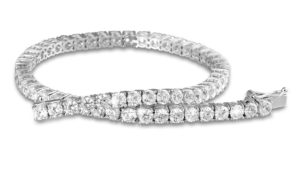
Baunat, 3.50 carat diamond tennis bracelet in white gold
The most compelling part is you can have the fine jewellery you covet, at a fraction of the cost but in a conscious way. Everything is taken care of for you including insurance, logistics, cleaning and maintenance. All the joy of jewellery ownership without the hassles.
No matter whether you want to be a more conscious consumer or a more savvy one, Covett can support you in either way. Be part of the community where the Covett team will make sure to bring more luxury into your life.
Website: https://cove.tt/
Instagram: @covettluxury
Facebook: @Covettluxury
Written By: Emma Wurfel | Deputy Editor
Facebook: @LadyWimbledon
Instagram: @EyesOfLadyWimbledon
Twitter: @EyesOfLadyW
